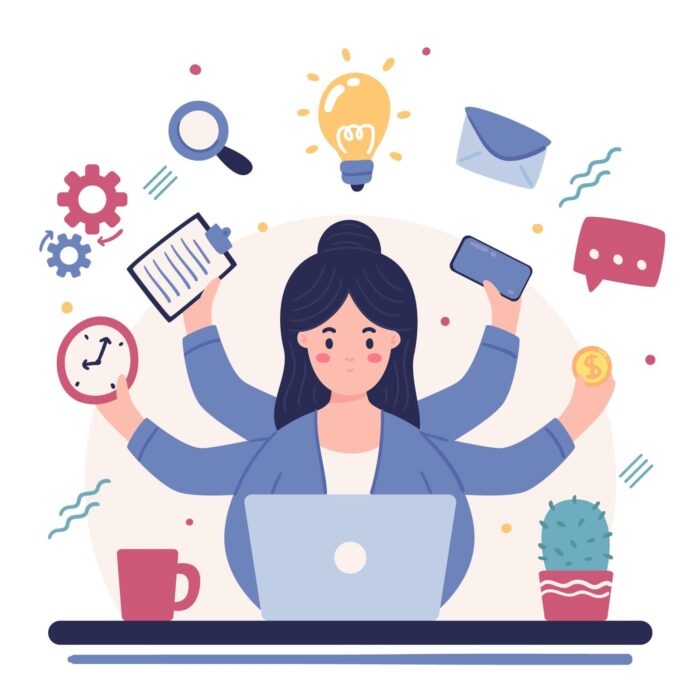The expansion of science and technology into media has increased the occurrence of multitasking. Multitasking is the ‘ability’ to conduct two or more tasks at the same time, both requiring attention and various advanced cognitive processes. All human action requires a series of associated brain functions in order to efficiently execute a task.
Peoples’ decisions to switch from one task to another can be based on self-interruptions that are grounded in feelings related to stress factors. As such, negative feelings can trigger multitasking initiation.
Scientists claim that there is no simultaneous performance of multitasks. When performing two tasks requiring different responses ultimately slows down one or both tasks. The brain is not constructed to pay equal attention to multiple tasks and to complete them equally competently, without loss in some respects.
Multitasking has a cognitive cost. Studies show that when multitasking, many irrelevant stimuli enter into one’s cognition and memory causing a decrease in one’s performance, whilst performance for the monotask condition is significantly better.
Multitasking, that was supposed to be the best asset of the Millennials, is becoming their weakness. In fact, instead of boosting the productivity, multitasking could reduce the productivity of the workforce. We’re not really multi-tasking, we’re actually shifting back and forth from one task to another, such as typing an email and then listening to that conference call conversation, then back to our email and so on.
The American Psychological Association have found that multitasking is no longer a skill to brag about, but to worry about.
The negative effects of multitasking are summarized below:
- It reduces productivity.
- It wastes our time, rather than save it.
- It kills our concentration and creativity.
- People become less mentally organized and struggle differentiating relevant from irrelevant details.
- The quality of performance is sacrificed.
- People retain less information and make more mistakes.
- It changes the way our brain works (less brain density in the areas controlling cognitive and emotional control).
- It increases the risk of impulsivity, which stimulates behavioral and mental disorders.
- It contributes to the predominance of depression, stress, anxiety, high rate of suicide and drug, alcohol and sex addiction.
- It increases the risk of traffic accidents.
- It may lower our IQ.
- It affects and reduces our Emotional Intelligence.
Emotional Intelligence, specifically, is an important booster of corporates’ productivity and competitiveness. Emotionally intelligent leaders strive to improve their demonstration and application of the core EI skills like self-awareness, empathy, motivation, emotional reasoning, self-management, adaptability etc, skills that we work to develop and strengthen in executive and business coaching.
So, what can you do to work more efficiently?
- Plan ahead the tasks you wish to go through each day.
- Prioritize the most important/ urgent ones.
- Set a timer for 20 minutes and focus on working on a single task, until time’s up (pomodoro technique).
- Have a 5’ break.
- Move to the next task for another 20 minutes and so on.
Image by Freepik


One Comment
"I don't have time" - the lie you keep telling yourself | Eirini Savalan
[…] to the most common belief, multitasking decreases our productivity (read more in the link). As such, it’s important to stop switching from one task to another, or we will end up with […]